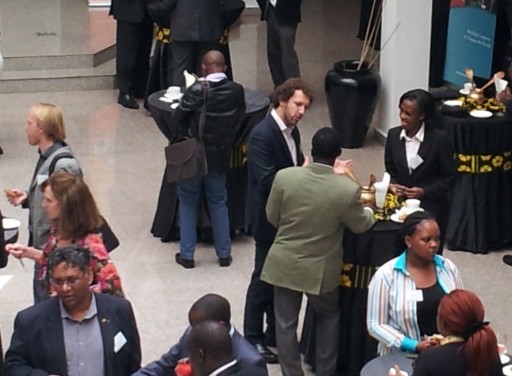I’m no one to comment on the Nigerian elections. But I do have one observation to make: the elected President is 72. How many people run for President (and win the election!) at this age? I bet not many. Africans have a young population, youthful mentality and respect for elders – the right values to get the best out of age diversity in management teams .

Let’s compare a company to a forest. A forest contains trees and other living organisms, and biodiversity plays an important role in its functioning. Similarly, a company is a human community comprised of people with different characteristics. Diversity – and age diversity in particular – may contribute to a company functioning well.
Younger people are like new shoots: they can contribute innovation and bring new ideas and ways of doing things. Older people are like established trees: they may act as repositories of knowledge and company values and pass these on to others.
At the same time, each generation has its own drawbacks. Younger people may not have a full picture of the company and its environment and might take undue risks; their elders may not embrace present times, and think things were better in the past. Of course, not all people fit the stereotypes: some young people are very wise, and some old people are very youthful.
Once I heard Carlos Ghosn (Chairman and CEO of Nissan Motor) say that when you have a common purpose, diversity is transformed from a source of conflict into a basis for complementarity. If people of different age groups work together, they can mutually enhance each other’s contributions and offset each other’s drawbacks.
These ideas might apply not only to companies, but also to other communities such as families or society at large, don’t you think?
As I finished writing this post I read about a study by McKinsey showing that companies with more diverse workforces perform better financially. Curiously, they focus on gender and ethnic diversity while age diversity is overlooked. Any ideas on why this may be the case?
On a different note, next week I’ll offer an open webinar: “Alliances and Acquisitions: 1+1=? It depends on how you do it!” Tuesday April 14th, 5:00-5:45 p.m. (GMT + 2). For additional information and free registration, click here.
Also, I want to express my condolences to the families of those killed in Kenya last week. My thoughts and prayers go out to them, with the hope that this will never happen again.


Curiously, when I was reading this post I realized the date it was posted (my 69 birthday!) and made me realized that I am in the group of people where diversity is not considered so. There are several reason for this:
1. I believe there is a bit of the historical reference (completely bogus) that there is not a clear understanding of the new technology by those of us larger in years.
2. Experience is not considered an asset; even in some cases it is considered a liability because (again a bogus concept) it does not include the present context but that where experiences developed.
3. Hubris, plain and simple.
4. Fear of been shown as someone who did not do the homework in looking at history (remember that those people that do not know their history are condemned to repeat it)
One of my experiences which is repeated in higher education institutions in the US; and regretfully is being copied by many others, is the salary structure which is much higher for new professors that for those already in the field; the excuse is “they bring new concepts to the institution” and my question is: if they just graduated from a doctoral program, who were their professors?
Thanks for bringing these topics to he table.
We must talk about them!
An interesting issue that has come to mind recently is that sub-Saharan Africans have a more integrated perspective than Westerners to life in general, and to business in particular. We tend to have a somewhat dialectical view: in this case, young vs. old. In contrast, they tend to see different groups as complementary, and the value comes from integrating diversity: in this case, everyone has something to contribute.
And btw, happy belated b-day, Santiago!